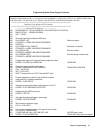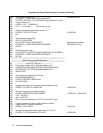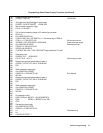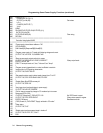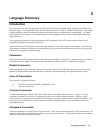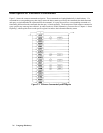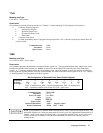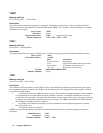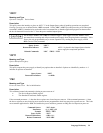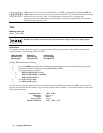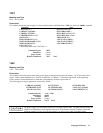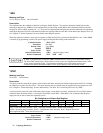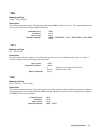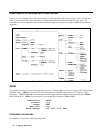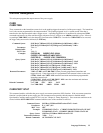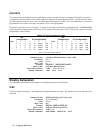
Language Dictionary 29
*OPC?
Meaning and Type
Operation Complete Device Status
Description
This query causes the interface to place an ASCII "1" in the Output Queue when all pending operations are completed.
Pending operations are as defined for the *OPC command. Unlike *OPC, *OPC? prevents processing of all subsequent
commands. *OPC? is intended to be used at the end of a command line so that the application program can then monitor
the bus for data until it receives the "1" from the power module Output Queue.
Do not follow *OPC? with *TRG or GPIB bus triggers. Such triggers sent after *OPC? will be
prevented from executing and will prevent the power supply from accepting further commands. If this
occurs, the only programmable way to restore operation is by sending the power supply a GPIB
DCL (Device Clear) command.
Query Syntax *OPC?
Returned Parameters <NR1> ASCII 1 is placed in the Output Queue when the
power supply has completed operations.
Related Commands *OPC *TRIG *WAI
*OPT?
Meaning and Type
Option Identification Query
Description
This query requests the power supply to identify any options that are installed. Options are identified by number A. 0
indicates no options are installed.
Query Syntax *OPT?
Returned Parameters <AARD>
*PSC
Meaning and Type
Power-on Status Clear Device Initialization
Description
This command controls the automatic clearing at power turn-on of:
• The Service Request Enable register.
• The Standard Event Status Enable register.
If the command parameter = 1, then the above registers are cleared at power turn-on. If the command parameter = 0, then
the above registers are not cleared at power turn-on but are programmed to their last state prior to power turn on. This is the
most common application for *PSC and enables the power module to generate an SRQ (Service Request) at power on.
Command Syntax *PSC <bool>
Parameters 0 | 1 | OFF | ON
Example *PSC 0 *PSC 1
Query Syntax *PSC?
Returned Parameters <NR1> 0 | 1
Related Commands *ESE *SRE



